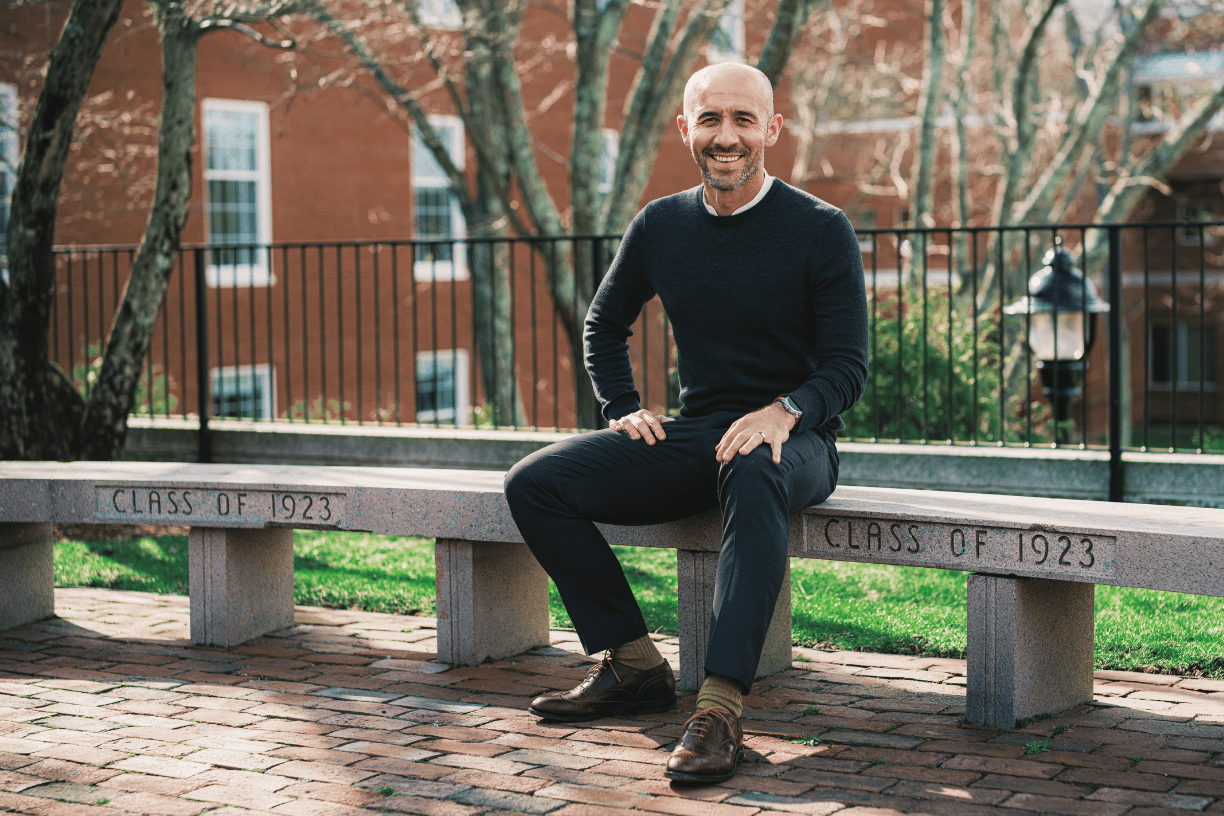
Understanding the Emotional Toll of Alzheimer’s Disease
Alzheimer’s disease and related dementias are poised to overwhelm global health systems. More than 57 million people worldwide are currently affected by these brain disorders, a population experts anticipate will soar to 153 million by 2050. Associated health care costs are also expected to skyrocket, more than doubling — from $1.3 trillion in 2019 to $2.8 trillion by 2030 — in just over a decade.
Beyond these physical and financial burdens is another, often hidden, cost, says Onur Altındağ, associate professor of Economics: Alzheimer’s exacts a substantial emotional toll on patients’ family members, many of whom become their loved one’s primary (and unpaid) caregiver. Existing research has focused primarily on labor market effects, he explains, with few quantitative studies undertaken to explore family members’ psychological well-being. But Altındağ, is changing that, with help from a $417,631 grant from Independent Research Fund Denmark, a public fund established by the Danish government’s Ministry of Higher Education and Science.
Tapping into Danish Data
Between 2018 and 2025, Altındağ has secured more than $3 million in grants and competitive contract funding for research on a variety of topics, including infant mortality, the long-term effects of childhood vaccines and humanitarian aid programs for refugees. His new grant will support the study of mental health effects on spouses of Alzheimer’s patients, building upon a similar study he is currently completing that explores the psychological health of patients’ children.
Both studies draw upon the same data set: comprehensive medical records from the Danish Health Registries. Because Denmark provides universal health coverage to all residents, Altındağ explains, the country “has amazingly precise data sets that allow us to link families together, like parents to children and children to siblings.”
For their studies, he and his co-researchers first identified death certificates from 2005-2011 that list Alzheimer’s disease or related dementias as contributing causes. Then they established a family tree for each patient, linking them to spouses and children. Finally, the team examined medical records related to family members’ mental health. Specifically, they looked at visits to mental health counselors and use of antidepressants, sleeping pills and anti-anxiety medications for 10 years prior and seven years after each patient’s death. Their total data set represents 20,000 Alzheimer’s patients and 36,000 children, as well as a control group of 36,000 individuals with similar demographics whose parents died of non-dementia-related causes. (For the new study, researchers will identify a similar placebo group to compare with patients’ spouses.)
Emotional Aftershocks: Alzheimer’s Ripple Effect on Families
Results from the children’s study, which Altındağ plans to publish soon, show a significant difference between the Alzheimer’s-affected and control groups. “Essentially, we find that parental dementia creates mental health disruption for about 10 years of someone’s life,” he shares. “During this time, we see a 30-40% increase in demand for mental health visits and a seven to 9% increase in medication use.” The prolonged period reflects “Alzheimer’s as a chronic, progressive disease with no cure or mitigating interventions,” he explains. “For patients, cognitive decline usually begins long before a formal diagnosis, and the median time from diagnosis to death is five years. It’s a very complex and devastating disease that develops over a long period of time.” In addition, Altındağ notes that these mental health disruptions persist well beyond a parent’s death: “After parental loss, there is a recovery, but it takes around five to six years for these trends to converge back to what it would be if their parent did not have Alzheimer’s.”
The data also reveals a gendered effect, he says, with women showing a significant increase in psychiatric visits and medication use compared with men. This effect is even stronger among women under age 50, the median age for parental loss in the data set. Though further research is needed to pinpoint why, Altındağ believes being part of the “sandwich generation” — a term used to describe adult caregivers dealing simultaneously with the needs of young children and aging parents — could be a factor.
Caring for Caregivers: A Public Health Priority
The children’s study results are a clear indication that family members of individuals with Alzheimer’s need additional emotional support, Altındağ says. He’s hopeful his team’s research can inform public policy, encouraging governments and health insurance providers to offer additional mental health services, or expand eligibility for existing benefits, for families of dementia patients.
Altındağ further notes that, in Denmark, the tax-funded health system provides long-term care coverage for Alzheimer’s patients, which means family members shoulder limited responsibilities; the majority of caregiving children in Denmark spend fewer than five hours per week tending directly to parents. That differs significantly from countries with privatized health care systems, like the U.S., where family members not only face increased out-of-pocket medical costs but also provide the vast majority of primary care. These additional stressors, he says, are likely to intensify mental health disruptions.
With global dementia rates on track to more than double by 2050, Altındağ believes now is the time for public health policymakers to take action. “The implications of this study are compelling,” he emphasizes. “Even in countries with robust long-term care systems, such as Denmark, Alzheimer’s disease and related dementias are causing significant and sustained psychological stress for patients’ families.”

